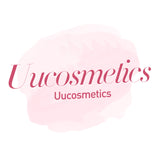How to Find an Efficient and Stable Hair Care Product Supply Chain? 5 Key Points Every Wholesaler Must Know
In the beauty industry, finding a stable and efficient supply chain is crucial for every wholesaler’s success. A solid supply chain helps avoid stock shortages, delivery delays, and additional costs while setting a strong foundation for business growth. Here are five essential points every wholesaler must know when searching for and maintaining a supply chain for hair care products.
1. Evaluate Supplier Reliability
The core of an efficient supply chain is the reliability of your suppliers. Wholesalers need to partner with suppliers who consistently deliver products on time and maintain high quality. When evaluating potential suppliers, consider the following:
- Track Record: Check the supplier’s history of on-time deliveries and consistent product quality. Look for reviews or ask for references from other wholesalers.
- Production Capacity: Ensure that the supplier has enough production capacity to meet your growing order volumes, especially during peak seasons like the holidays.
- Response Time: Assess how quickly the supplier responds to inquiries, resolves issues, and adapts to sudden changes in demand.
Key Tip: Establish clear communication channels with your suppliers and build strong relationships to ensure smooth business operations.
2. Consider the Supplier’s Product Range and Innovation
For wholesalers, it’s important to work with suppliers who offer a wide range of hair care products that cater to different customer needs. Suppliers who innovate and stay ahead of trends in the industry can give you a competitive edge.
- Product Variety: Ensure that the supplier offers a diverse range of products, from shampoos and conditioners to specialty items like hair masks, styling gels, and treatments for different hair types.
- Product Innovation: Consumers are increasingly seeking natural, eco-friendly, and sustainable products. A supplier that offers innovative, trend-forward products can help you attract more customers.
Key Tip: Choose suppliers who stay updated on market trends, enabling you to offer the latest and most appealing products.
3. Focus on Supply Chain Flexibility
In a dynamic market, supply chain flexibility is critical. Your supplier should be able to adapt quickly to changes in demand, unexpected disruptions, and market fluctuations. A flexible supply chain ensures your business remains resilient in the face of challenges.
- Adaptability: Look for suppliers who can adjust their production schedules or increase output as needed to meet surges in demand.
- Local vs. Global Suppliers: Depending on your location, working with local suppliers can offer faster delivery times and lower shipping costs, while global suppliers may offer a broader product range.
Key Tip: Establish backup suppliers or diversify your supplier base to avoid over-reliance on one source.
4. Evaluate Cost-Efficiency of the Supply Chain
While maintaining product quality is vital, cost-efficiency is equally important to ensure profitability. Wholesalers need to strike a balance between competitive pricing and high-quality products. Consider the following factors:
- Shipping and Handling Costs: Choose suppliers with transparent and reasonable shipping costs, especially if you’re importing products from abroad.
- Payment Terms: Negotiate favorable payment terms such as extended payment windows or discounts for bulk orders.
- Storage and Warehousing: Work with suppliers who can help reduce warehousing costs through efficient inventory management.
Key Tip: Ensure your supply chain minimizes unnecessary costs without compromising on quality or service.
5. Ensure Long-Term Sustainability and Growth Potential
Building a supply chain that can support your long-term business growth is key to success. Your suppliers should align with your company’s vision and be capable of scaling production as your business expands. Moreover, in today’s environmentally conscious market, partnering with suppliers that prioritize sustainability can enhance your brand reputation.
- Sustainability: Consumers are increasingly choosing brands that focus on eco-friendly products and packaging. Partner with suppliers who are committed to sustainable practices, such as using renewable resources or reducing waste.
- Scalability: As your business grows, ensure that your suppliers can scale up their operations to meet your increased demand without compromising quality or delivery times.
Key Tip: Build long-term partnerships with suppliers that share your commitment to growth and sustainability.
Conclusion
For hair care wholesalers, securing a stable and efficient supply chain is essential to maintaining a consistent flow of high-quality products and meeting customer demand. By evaluating supplier reliability, focusing on product innovation, ensuring supply chain flexibility, managing costs, and prioritizing sustainability, you can establish a supply chain that supports your business’s growth.
Finding the right partners will ensure smooth day-to-day operations and allow you to seize new opportunities and scale your business. With the right strategies in place, you can confidently navigate the competitive beauty industry landscape and achieve long-term success.









